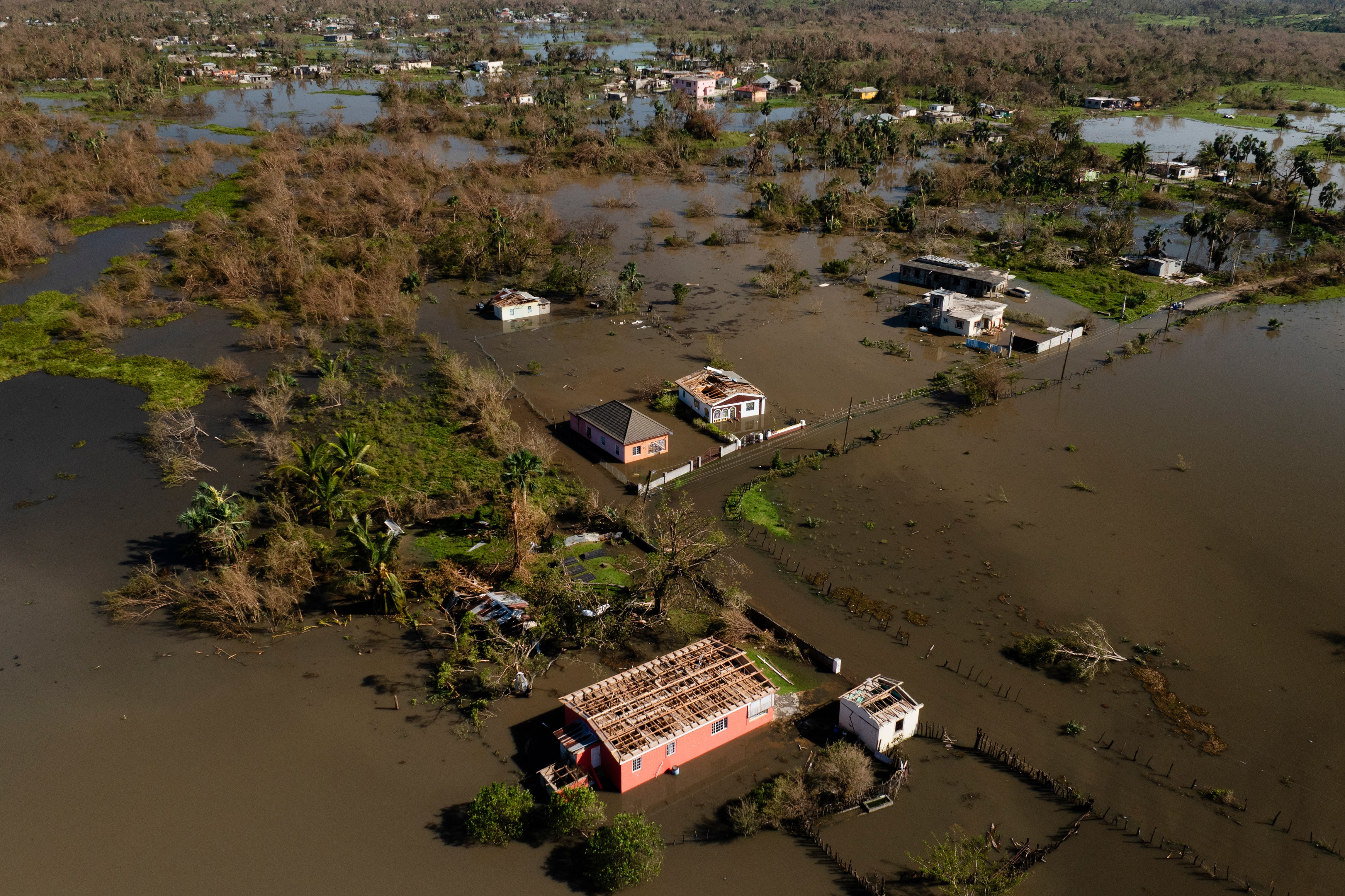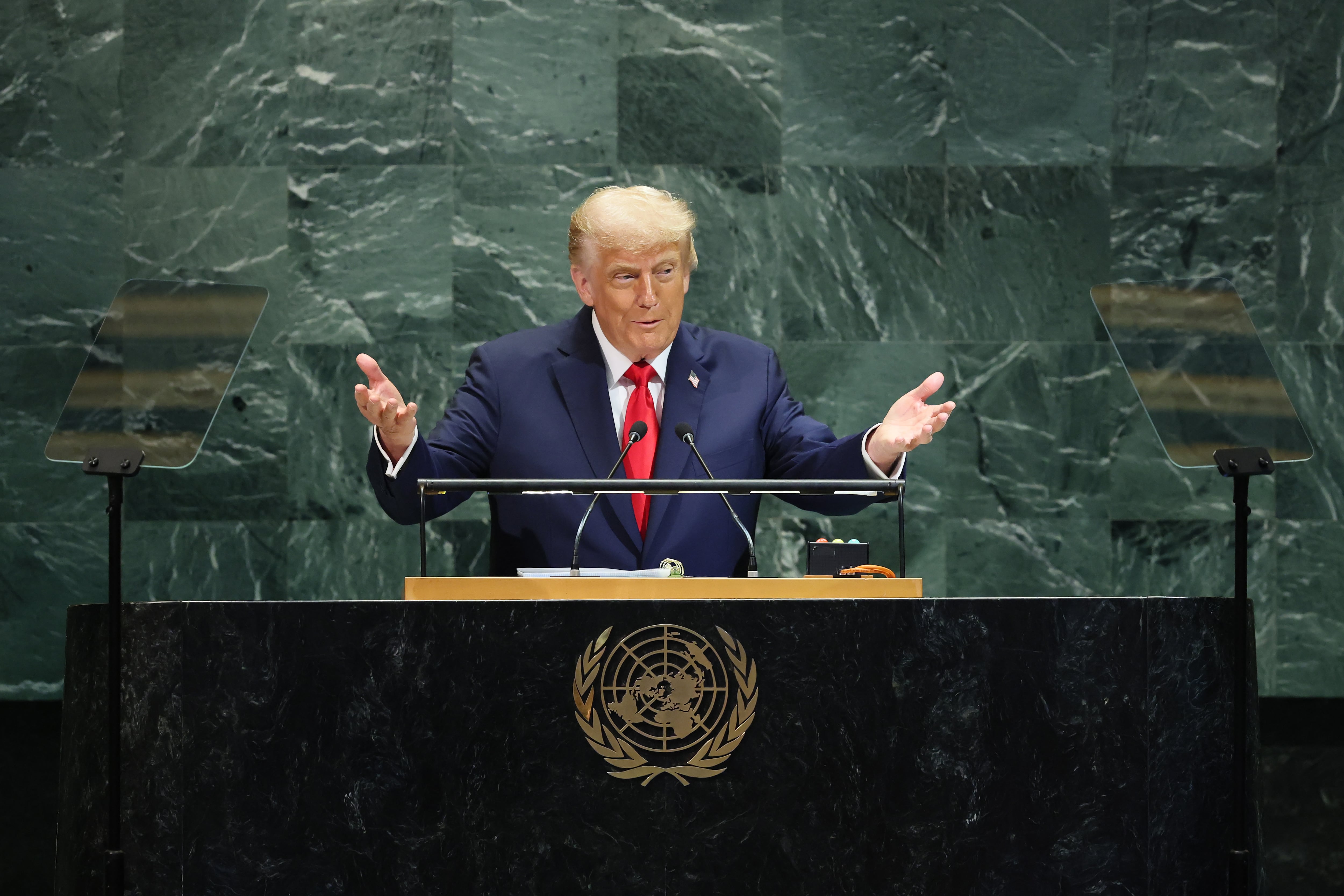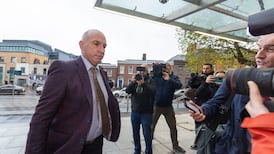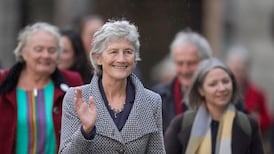As a backdrop to optimism, Belém has plenty to offer.
The waterside city in northern Brazil is the gateway to Amazonia and the rivers and rainforests that represent all that is rich, vibrant and vital in the natural world.
Host to the Cop30 climate summit, which begins next week, Belém is supposed to be a reminder to thousands of international delegates of what is at stake in their talks.
The global climate negotiation process was initiated in Brazil with the Rio Earth Summit in the hopeful 1990s. This is to be its homecoming.
READ MORE
It will be the 30th Cop convened since then and it takes place on the 10th anniversary of the Paris Agreement, formulated to strengthen resolve and ambition for the process.
You could pluck symbolism in handfuls from the mango trees.
But just days from the start of the gathering, the mood is subdued and Belém’s capacity to act as a beacon of hope for action on the climate crisis is uncertain.
“There isn’t a huge amount of optimism heading to this Cop from a political or scientific standpoint,” says Ross Fitzpatrick, who will be attending Cop30 for Christian Aid Ireland.
The science is alarming, with recent reports from the World Meteorological Organisation and leading research institutes reiterating how perilous Earth’s position is.
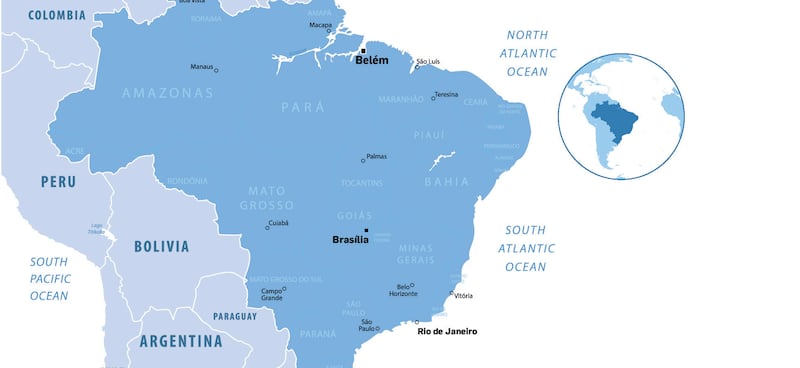
Despite three decades of climate agreements, the concentration in the atmosphere of carbon dioxide, the main warming gas, is now the highest humans have ever encountered and still rising.
This year, 2024 and 2023 are set to become the three hottest years on record. The litany of worsening heatwaves, droughts, wildfires, floods, storms and loss of life and livelihoods keeps growing.
Politically, the temperature is also febrile.
“Climate denialism is back at a point we thought we’d moved on from,” Fitzpatrick says.
He refers to US president Donald Trump’s address to the United Nations General Assembly last month in which he claimed climate change “the greatest con job ever perpetrated on the world”.
The US isn’t the only problem. Brazil has just issued an oil exploration licence to Petrobras, the state-controlled energy company, to work offshore from the state neighbouring Belém.

“The host country’s own climate credentials are already in doubt,” Fitzpatrick says. “So who do we look to for leadership on climate? Many would look to the EU, but the signals coming from the EU are not reassuring.
“The dominant narrative is that nothing can come at the expense of competitiveness. That rhetoric has become mainstream.
“So it’s very hard to identify who the climate champions are going to be heading into Cop.”
Presuming there are indeed countries and leaders willing to fly the flag for climate action at Cop30, they will have multiple causes to champion.
First there are the nationally determined contributions (NDCs) that each country must adopt, revise and update every five years. NDCs are climate action plans that set out how each country will reduce its own greenhouse gas emissions in the immediate future and longer term.
Collectively, NDCs are meant to keep global temperature rise to well below two degrees, and ideally no more than 1.5 degrees, above the average that prevailed in pre-industrial times before the burning of fossil fuels accelerated.
[ Amazon remains in great peril and should top Cop30 agendaOpens in new window ]
The five-year review falls this year but the numbers can’t be crunched yet as most countries have not yet submitted their revised NDCs despite a deadline of last February.
Ireland, which submits individually and under the EU banner, is among the foot-draggers.
The EU has tenuously agreed a revised emission reduction target of 90 per cent by 2040 but has not submitted it because negotiations are ongoing on the conditions attached to it.
Some member states want a guarantee the goal will be reviewed every two years and adjusted – which means lowered – if economic circumstances change.
A last-ditch attempt at agreement will be made when EU environment ministers meet on November 4th, two days before heads of state and government arrive in Belém.
Even if there are 11th-hour NDC submissions by laggard countries, their level of ambition is what really counts.
“We already know that they are not collectively going to be 1.5 degrees-aligned,” says Dr Sinéad Walsh, former head of the climate unit at the Department of Foreign Affairs and now principal researcher with the think tank ODI Global.
“One of the big questions for Cop30 is: what can Brazil do about it?
“A lot of people are saying the hosts are going to need to make a strong statement that the NDCs are insufficient and point out how far we are from where we need to be.
“But how can they use the Cop process to incentivise greater ambition? That’s something to look out for.”
For all the criticism of the host nation, Walsh admires the diplomatic powers of the Brazilian delegation.
She negotiated across the table from them in talks aimed at extracting money from better-off nations to assist the poorest countries with climate action, and says they are no pushovers.
“They’re very experienced and very skilled,” she says. “If they want to deliver an outcome at Cop30, they will work very hard to get it.”
Brazil’s colourful president, Luiz Inacio Lula da Silva, is a force to be reckoned with too.
He insisted, against advice to the contrary, on hosting Cop30 in Belém. Before 50,000 visitors arrive in this city of faded fortunes and favelas, there has been a frantic effort to upgrade sewage treatment, improve ramshackle roads and install street lighting.
Lula not only wants to put his stamp on the city but on the summit itself by formally launching a global fund for rainforest protection.
The idea behind the Tropical Forest Forever Facility (TFFF) is a mix of altruism and self-interest.

Governments and private operators such as pension funds would put money aside for investment in high-yield financial products, excluding those linked to fossil fuels.
Part of the returns on such investments would be paid to countries and communities to keep their rainforests standing, replacing income they would receive from felling the trees for timber, livestock grazing and fuel.
So far only Brazil has pledged money to the TFFF – $1 billion (€859.5 million) to get the ball rolling for a fund it hopes will reach $25 billion by the time Cop30 ends.
Finance is always a delicate subject at Cop summits, even when the cause is as critical as preserving the forests that help counter climate change.
At Cop29 last year in Baku, Azerbaijan, a compromise agreement on a New Collective Quantified Goal – Cop language for a climate fund – was painfully teased out to the satisfaction of almost no one.
It requires that by 2035, richer countries will provide $300 billion annually to help the poorest nations most affected by climate change.
It simultaneously requires all countries to work towards increasing that amount to $1.3 trillion annually by targeting private sources of funding – fossil fuel companies for example.
Critics have variously described the deal as too little, too burdensome, too vague and too aspirational.
A “Baku to Belém Roadmap” setting out how the fund might function has only just been completed, but is not yet agreed.
Dr Diarmuid Torney, director of the Institute for Climate and Society at Dublin City University, sees a trend here.
“As often with Cops, we get an agreement and then there’s a delay in implementation,” he says.
“It was the same with the Paris Agreement, and with agreeing rules on how carbon markets [for the trading of credits based on quantities of carbon captured by forests or other means] would operate.
“There’s a challenge there in holding countries to account but also trying to maintain some kind of momentum – especially when the mood music is not favourable.
“We have all the bits of the jigsaw and we need to actually get on with implementing climate action.”

Getting 197 countries to move in the same direction when they start from different places at varying paces is never easy. But there is an added concern this year around the attitude of the United States.
The country’s appetite for climate action has wavered in the past but in his second term Donald Trump has turned reservation into disdain.
In his infamous UN address, he dismissed the science of climate change and declared: “The carbon footprint is a hoax made up by people with evil intentions.”
He has done more than just trash talk.
One of the final acts of Trump’s predecessor, Joe Biden, was to submit the US’s NDC during Christmas week last year, pledging an emissions cut of 61-66 per cent by 2035.
One of Trump’s first acts as president only one month later was to declare the United States’ withdrawal “from any agreement, pact, accord or similar commitment made under the Under Nations Framework Convention on Climate Change”.
It is clear that the absence from global climate negotiations of the world’s biggest economy and second-largest emitter diminishes the process.
Yet there is fear of even greater damage if a US delegation attends the talks, a possibility the White House has left open.
“Under the first Trump administration and George Bush before him, the US took the attitude that we’re walking away, we’re not interested, but the rest of the world can do whatever they want,” Torney says.
“The concern now is that they would get involved but do so to undermine the process.”
Cop decisions are taken by consensus but not all countries have to agree – the practice is that those opposed simply make no formally stated objection.
The US can cause headaches by withdrawing funding and co-operation from climate programmes but it could unleash a paralysing migraine by blocking formal decisions.
Observers fear a meeting on international shipping earlier this month was a trial run for such tactics.
The International Maritime Organisation was scheduled to adopt the Net Zero Framework, aimed at cutting emissions from shipping and applying a carbon tax on the sector.
The details had been agreed for months but the US forced postponement of the final adoption pending further discussions next year.
A White House statement said it “unequivocally rejects this proposal” and that any country supporting it may have its vessels banned from US ports and face “sanctions on officials sponsoring activist-driven climate policies”.
Still, activists from the US are putting on a brave face and will be attending Cop30 to tell the rest of the world to hold their nerve and focus on the longer-term goal.
Catherine McKenna, a former Canadian climate minister, expressed similar sentiments this week. “Leaders come and leaders go but climate change will still be here because climate change obeys science, not politics,” she said.
We have to look at it as a media moment, a public awareness moment. We should be doing it all year but that’s not how things work so you have to grab your opportunities
— Sinéad Walsh of think tank ODI Global
Where Ireland slots into this complex geopolitical jigsaw of ill-fitting pieces is a matter of perspective.
For a small player, Ireland has been influential in pushing for agreement on climate finance. The solid track record of Irish Aid and long friendships with many developing countries often gives Irish officials key seats at negotiating tables.
At Cop26 in 2021, the Government pledged to double Ireland’s own climate finance contribution to €225 million annually by 2025.
The final count of this year’s spend is not complete to verify if that happened. If it did, it would be a high financial contribution per capita. But that is not even half the €500 million that organisations such as Oxfam and Christian Aid describe as Ireland’s true liability, given the country’s high emissions.

Taoiseach Micheál Martin is scheduled to travel to Belém for the two-day “world leaders summit” that takes place next week before ministers and delegates sit down for the intense fortnight of negotiation beginning on November 10th.
Last year, Ireland, heading into a general election, had no head of government at the talks, an absence later criticised by Baku on the basis that all countries need to show up, stand up and speak up for climate action.
But does it matter to the general public whether Ireland has a presence at Cops?
Deirdre Duff, chief executive of Friends of the Earth, believes there is a good level of interest among ordinary people, and the organisation aims to build on it while Cop30 is under way.
“Cop30 might be taking place in Brazil but people can get involved in the global climate talks from Ireland too,” she says.
Friends of the Earth will hold its annual national climate march to coincide with the midway point in the talks.
It takes place in Dublin on Sunday, November 15th, starting from the Garden of Remembrance.
“We’re urging people to raise their voices for climate justice by joining it,” she says. “We’ll also be demanding action from the Government to say no to big polluters, to support better insulation and building standards in our homes, to provide public transport so we can all move around freely.”
Sinéad Walsh also believes Cops provide an opportunity to bridge the distance between global climate negotiations and local concerns.
“It’s the annual moment when people in your family and your neighbours know that there is something going on climate-wise,” she says.
“I think we have to look at it as a media moment, a public awareness moment, a chance for educators to focus on the issues.
“We should be doing it all year but that’s not how things work so you have to grab your opportunities.”
What will ultimately emerge from Cop30 is unclear, as is finding a benchmark to measure its success.
Diarmuid Torney cautions that expectations need to be modest.
“Multilateralism is under pressure, so even if we don’t make massive progress on particular topics this year, just maintaining commitment to the institutions of climate governance is important.
“Just keeping the show on the road – that might be the best we can hope for.”
Climate and Science Correspondent Caroline O’Doherty will be reporting from Cop30 for The Irish Times online and in print



